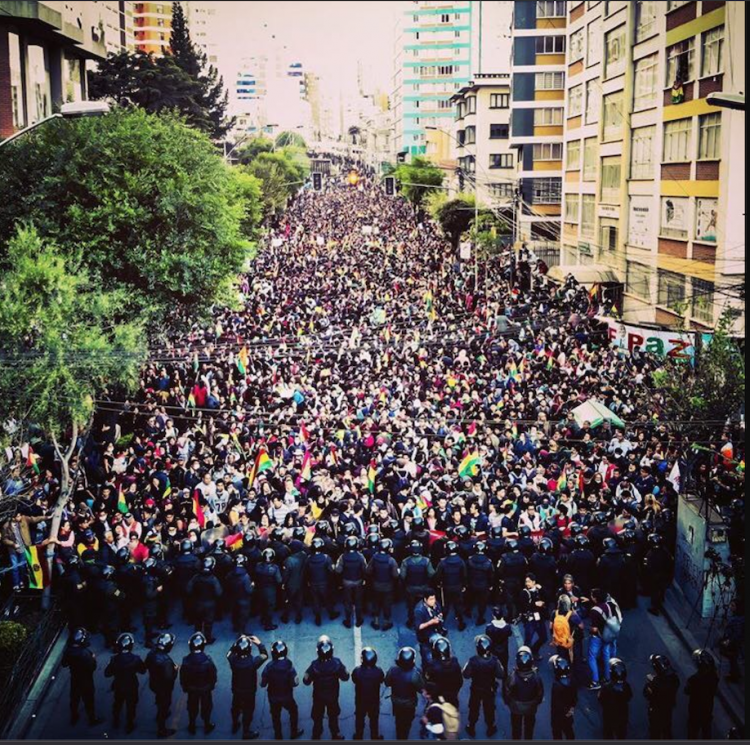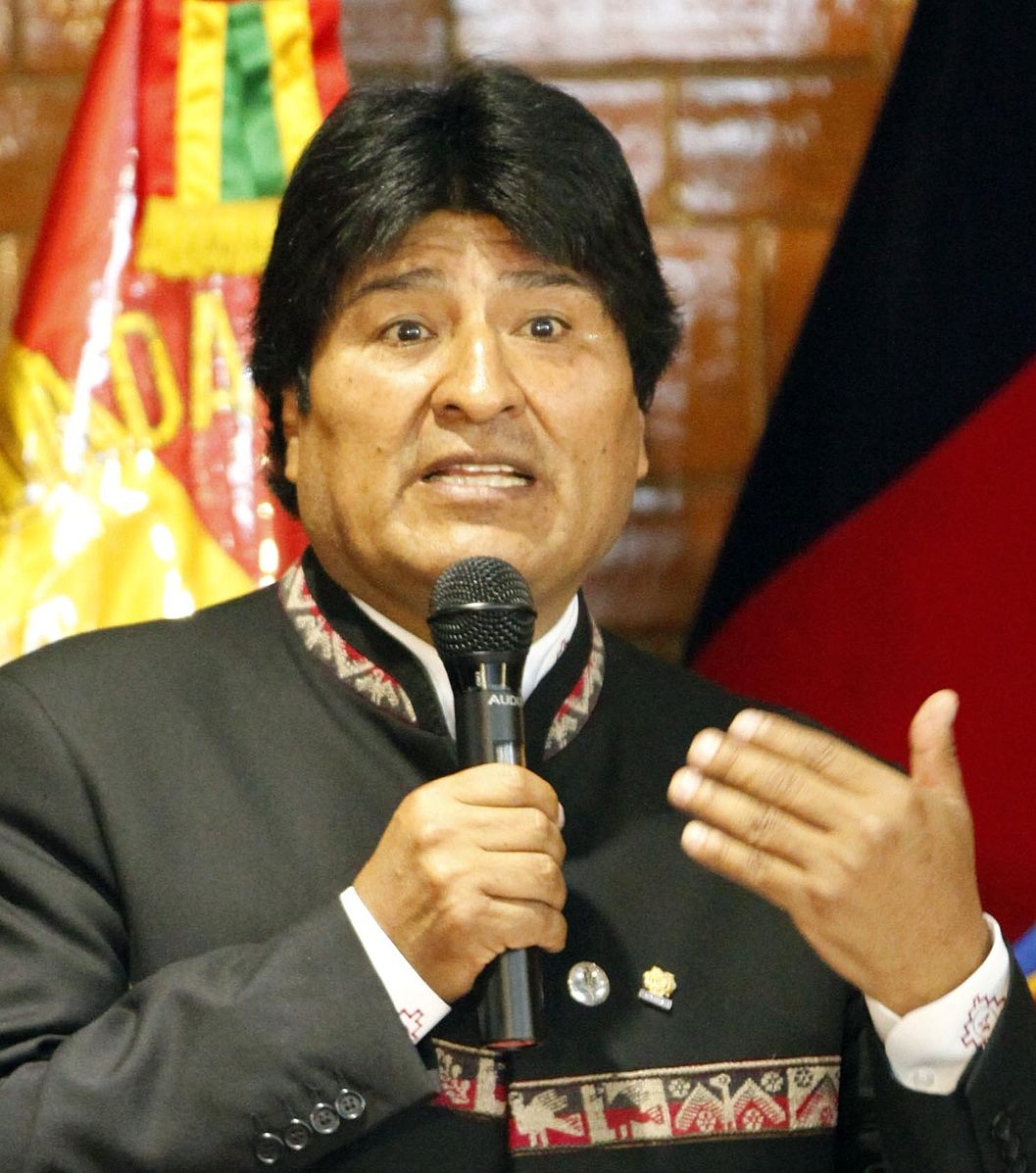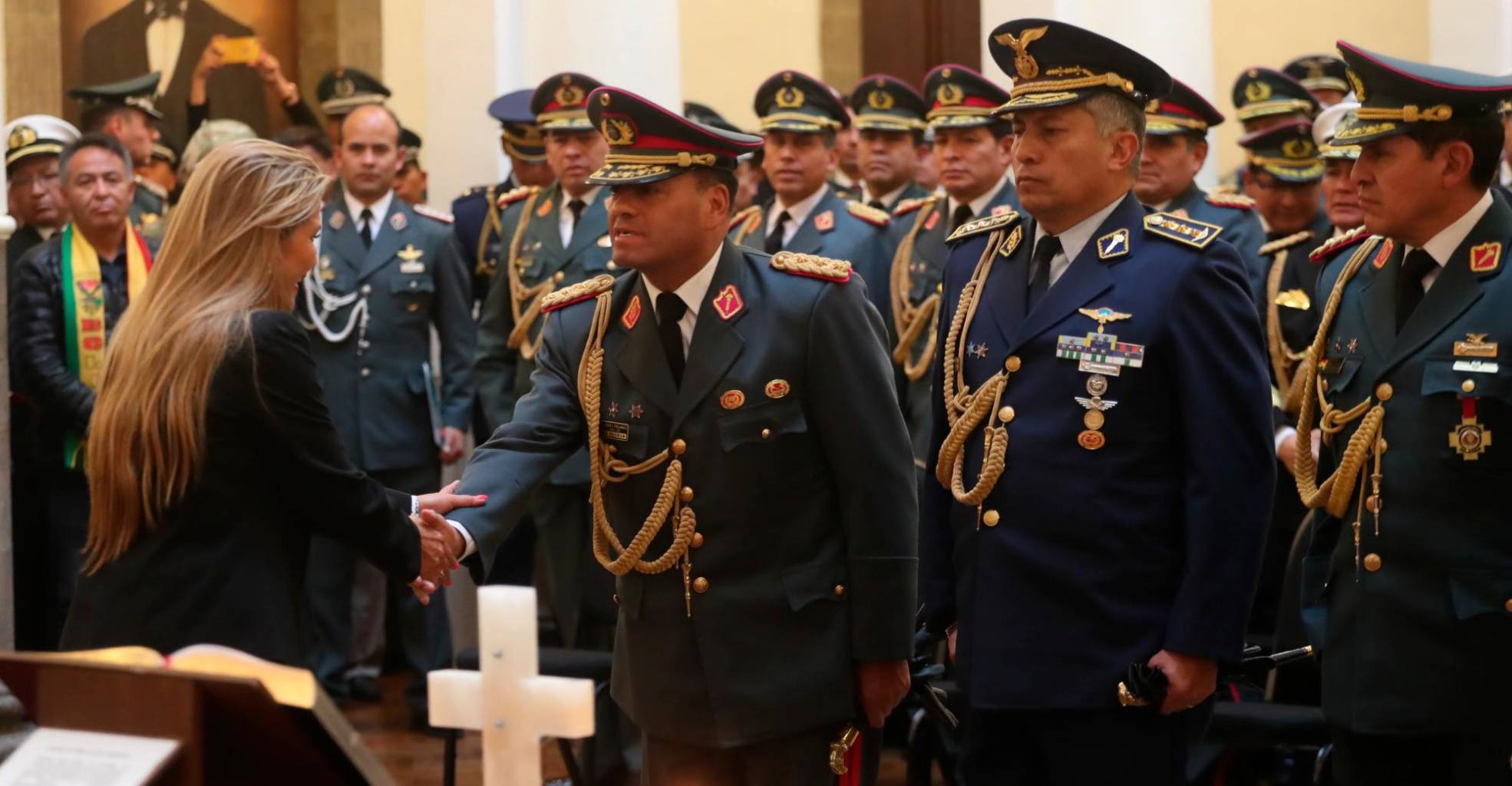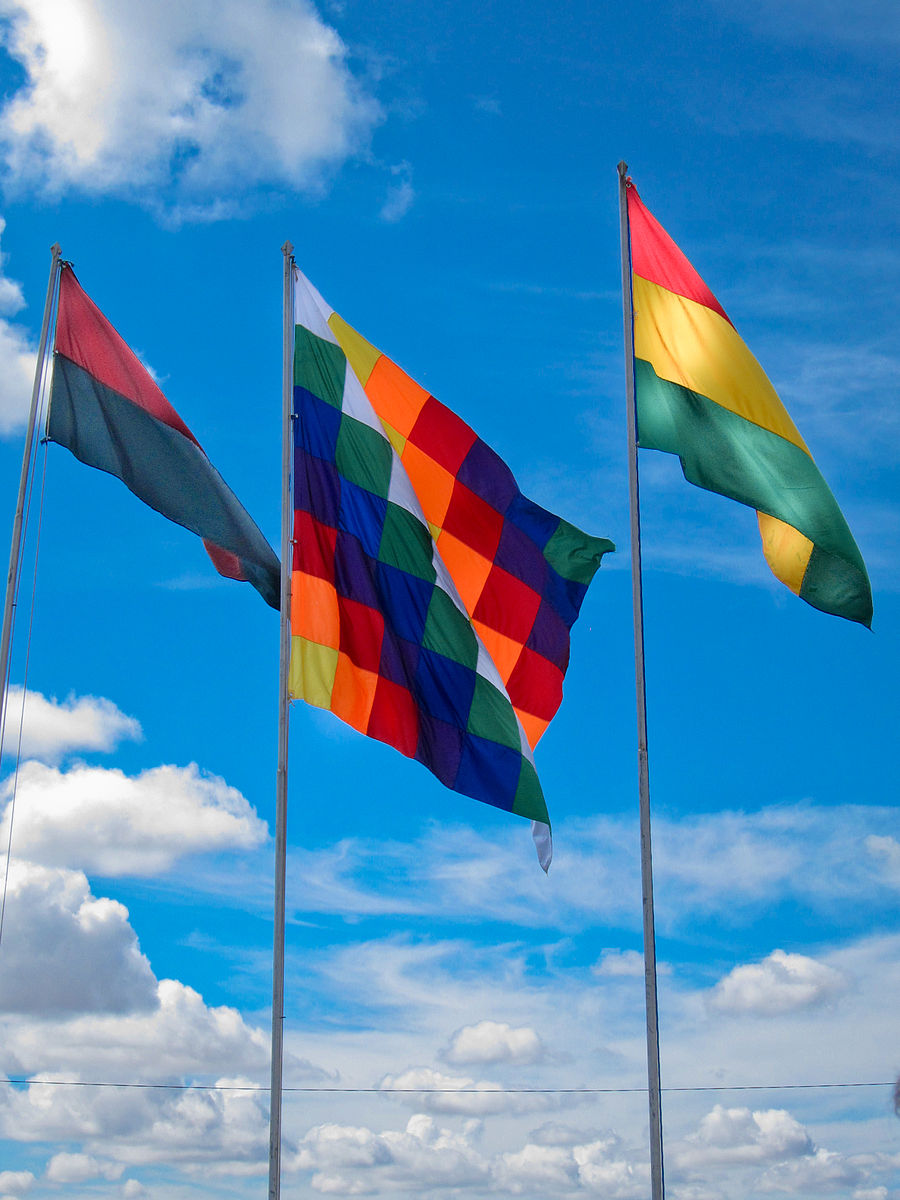A Time of Unrest: Bolivia

In a global moment of protests, the stakes and circumstances of individual movements are often lost. Bolivia's protests in particular have been an interesting case, sparking big change and drawing major international attention. They broke out on October 21, after recent elections kept incumbent President Evo Morales in office for a fourth term, not long after he abolished term limits. The Organization of American States (OAS), who was in Bolivia to monitor the election, quickly called into question Morales's victory, citing a mysterious nationwide halt to voting for twenty-four hours. Before the halt, Morales was in the lead but his margin of victory would have warranted a second-round vote. After the halt, Morales was winning handily enough to avoid any additional voting.
Angered, many Bolivians took to the streets, riding the international wave of protests. Morales struggled to respond under mounting pressure. As protests in some cities turned violent he consented to a full audit of the election by the OAS. On November 9 police garrisons in many of the cities struck by the strongest protests mutinied, and the army said it would not step in against protesters. This represented a huge blow to Morales. The next day the OAS released a statement during their audit that cast further doubt on his victory. In an effort to placate the swelling opposition, the president attempted to call for a new election with a new election board, but to no avail. On November 10 the head of the Bolivian army requested that Morales resign, and by November 12 Morales arrived in Mexico, having been granted political asylum.
Former Bolivian president, Evo Morales. Image Credit: Wikimedia Commons/ Cancillería EcuadorThe legacy of the first indigenous president
Morales did make strides for many Bolivians during his fourteen years as president. During his tenure the rate of poverty in the country was reduced by more than half, as he turned one of the poorest countries in the hemisphere into one of the fastest growing economies on the continent, aided by an ongoing commodity boom. In contrast to other leftist governments in South America, Morales was able to carefully steer the economy in a way that was beneficial, gently increasing taxes on mining and hydrocarbon industries in the country. He then reinvested state funding into better infrastructure, public services, and social services. Even his political opponent in the past election recognized the popularity of these programs, promising to keep them for the Bolivian people.
Morales himself is the first indigenous president of Bolivia, and has championed the rights of the native people. In Bolivia, this segment of the population has often been treated as second class citizens by the elite, who stem from European lineage. Early in his tenure Morales presided over the drafting of a new constitution that separated church and state, referring to Bolivia as a "plurinational state," that recognizes 39 indigenous languages. The constitution even reserves seats for indigenous representatives in the national legislature. This level of inclusion and visibility for approximately half of the population of the country as a whole meant he enjoyed support from much (though not all) of the indigenous community. However, when news first broke of election improprieties, many indigenous peoples took to the streets to join the protests, knowing that the progress that had been made could easily disintegrate because of one man's ego.
Morales's resignation evoked the question of who would replace him. The Bolivian Constitution dictates that in such circumstances a new election must be called within 90 days, and that an interim president must take over in the meantime. Every official in line for the presidency had also resigned, leaving a power vacuum. Many reports indicated that Morales's allies had been victim to intimidation tactics, with vigilantes kidnapping their loved ones and settting fire to their homes. Eventually the deputy leader of the senate, Jeanine Áñez, declared herself interim president without securing the quorum needed to confirm her mandate. Though members of MAS (Morales's party) boycotted her confirmation, Áñez had the support of the constitutional courts and the military. She has since been recognized by several countries (notably the US) as the legitimate head of government.
Jeanine Áñez and the Bolivian military staff. Image Credit: Wikimedia Commons/ JulioEstebanJiA tumultuous shift in power: Jeanine Áñez takes the helm
Áñez made a splash as she entered the Presidential Palace, brandishing a comically large Bible and decreeing, "The Bible has returned to the government Palace." This served as a significant contrast to the indigenous ceremonies that Morales had held in the Palace. Áñez has a reputation for racist language, and previously has gone so far as to call indigenous ceremonies "satanic." This has reminded many Bolivians of former right-wing, Catholic regimes led by Bolivians of European descent. Áñez also immediately stocked her cabinet with fellow conservatives, all of whom were of European ancestry, though she later backtracked and hired an indigenous Minister of Culture.
While Áñez vowed to uphold the duties of interim president by holding the election within 90 days, she has already set about changing Bolivian policies on a larger scale. Most notably, she has been working to drastically change Bolivia's foreign relations, recognizing the controversial government of Juan Guaido in Venezuela, and expelling Cuban medical staff they accused of instigating protests. The new government also sought to immediately quell the ongoing protests, which had largely morphed into a pro-Morales protest, which claimed there had been an outright coup against him. Áñez quickly declared the military would be immune from any prosecutions over actions they took to "maintain public order." The next day, a crackdown killed five people.
The Whipala flag, in the center, is used as a flag for indigenous Bolivians. Image Credit: Flickr/ Christian JiménezFollowing chaos, an uncertain future
The exact circumstances of Morales's exit have prompted a lot of debate over how to label this change of government. Does the military's involvement make it a coup? Does the popular unrest mean this was a revolt? Most verdicts across the globe have fallen along ideological lines, as left-wing politicians decry a coup, and right-wing politicians laud a popular revolt protecting Bolivian democracy. The two terms - coup and revolt - each have significant connotations, with a romanticism of the popular revolt for democracy and the injustice of anti-democractic military coups rooted in a Western perspective from the Cold War.
Why can't both be true? Evidence abounds that Morales was gaining a taste for the trappings of power, which will undoubtedly be a stain on his legacy. At the same time, the evidence that Morales's conservative opponents capitalized on a moment of protest to oust him also bear weight. The discussion as a whole seems rather unproductive, since the events are still ongoing and unsettled. The real questions that deserve attention are what happens to the Bolivia Morales left, and who is in control?
For now protests continue, as the death toll since November 10 mounts to 29. International organizations have called on Áñez to revoke the protections she promised the military, in the hopes of preventing further deaths, but as of now they still stand. Resources in some cities are becoming scarce as pro-Morales protesters have blockaded major transit routes. MAS has indicated a willingness to move toward new elections with the Áñez government and anull the results of the October 20 election.
As Morales's party still controls more than half of the national legislature and enjoys wide support, any new elections would be considered illegitimate if carried out without MAS. Áñez has threatened to hold an election by presidential decree, as she and her allies seek to discredit not only Morales, but also MAS. Some critics speculate that such a move could be a precursor to barring MAS candidates from standing for election altogether. The future is uncertain, but what is clear is that the next 90 days will decide Bolivia's fate.










